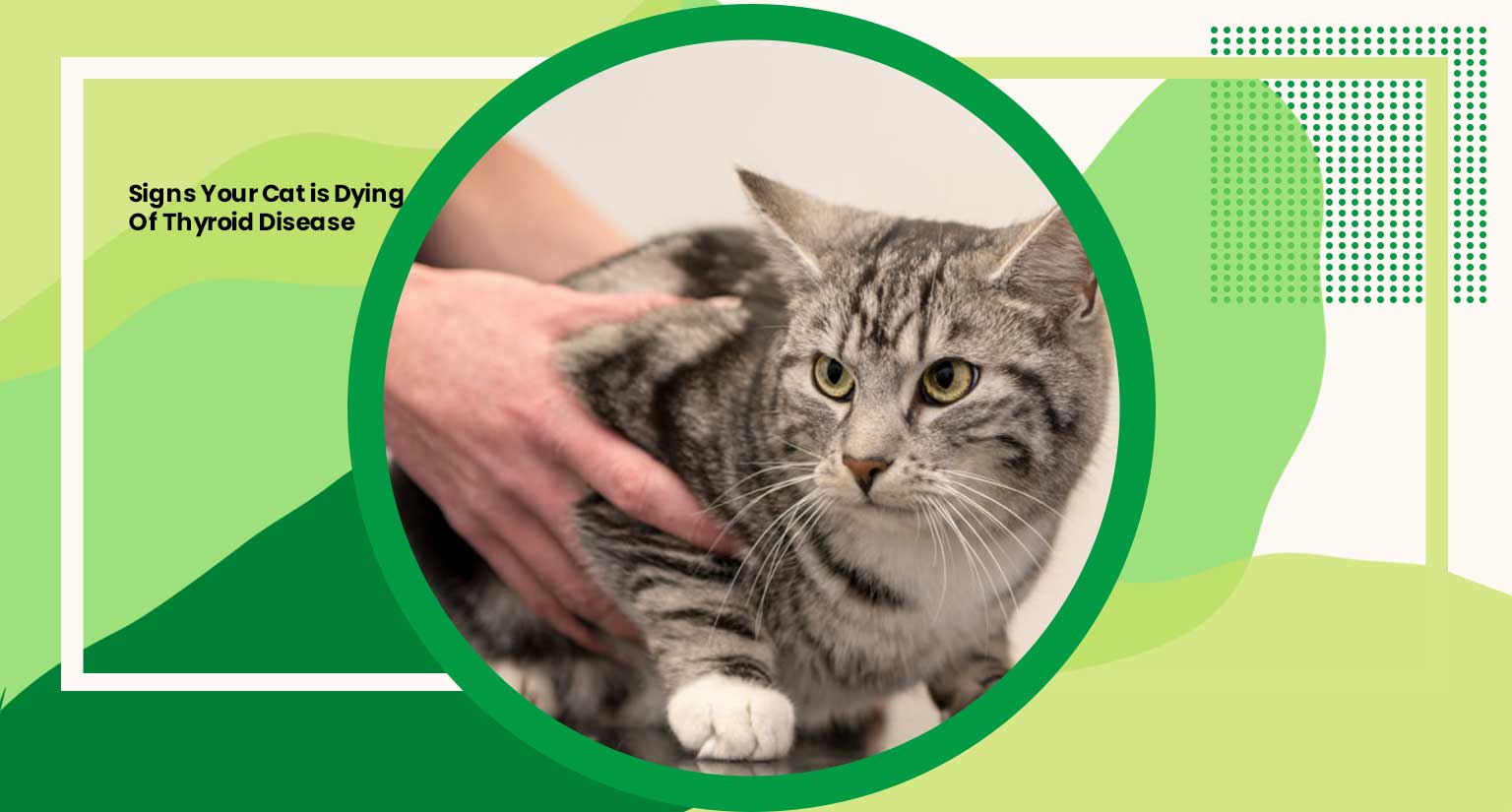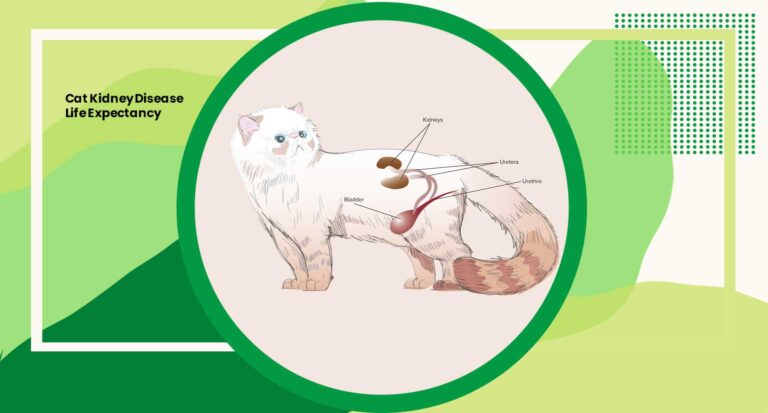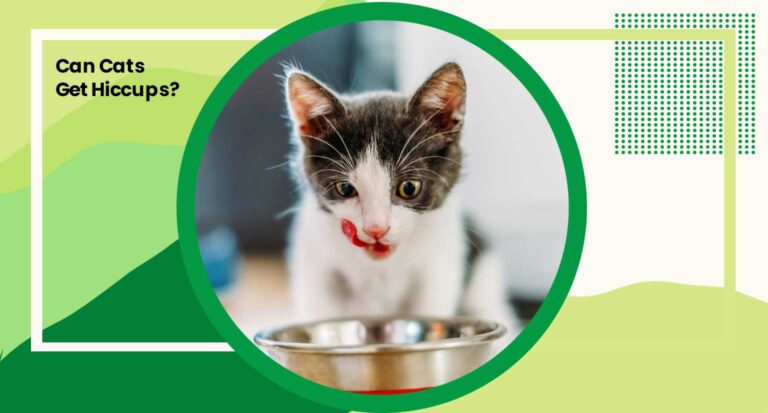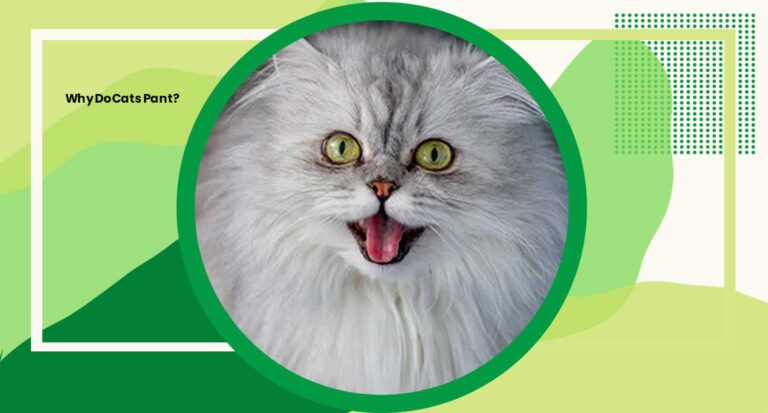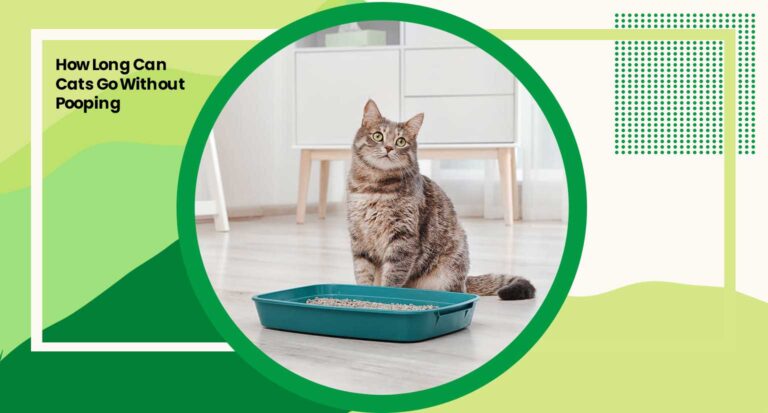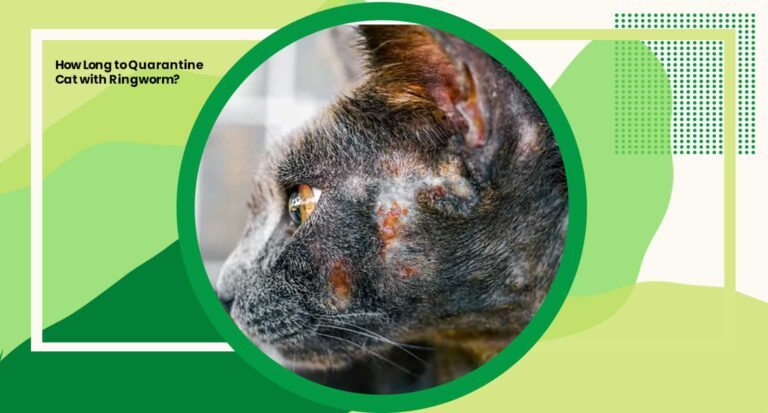Signs Your Cat is Dying Of Thyroid Disease
Thyroid disease can silently affect our feline companions, posing serious risks if left unnoticed. Cats, like humans, can encounter thyroid imbalances, often exhibiting subtle signs that may indicate a deeper issue.
Signs your cat is dying of thyroid disease, It’s crucial for every cat owner to recognize the red flags signaling potential thyroid complications.
By understanding these signs and symptoms, you can promptly seek the necessary care and support for your beloved pet.
Symptoms of Hyperthyroidism in Your Cat
One of the hallmark signs of hyperthyroidism in cats is a surge in appetite paired with unexplained weight loss. Despite consuming more food, your feline friend may experience a steady decline in weight, signaling a potential thyroid issue.
Excessive Thirst and Urination
Keep an eye out for heightened thirst and an increase in urination frequency. Cats with hyperthyroidism tend to drink more water than usual and may make more frequent trips to the litter box.
Restlessness and Hyperactivity
If you notice your cat displaying unusually restless behavior or heightened activity levels.
It could be a subtle indicator of hyperthyroidism. Cats may become more agitated or restless due to hormonal imbalances.
Unkempt Appearance and Poor Coat Condition
Changes in your cat’s fur, such as a dull or unkempt appearance, can signify thyroid issues.
A once-glossy coat might appear lackluster, indicating an underlying health problem.
Vomiting and Diarrhea
Thyroid disease can manifest gastrointestinal symptoms like vomiting and diarrhea.
If your cat experiences frequent bouts of these symptoms, it’s advisable to consult a veterinarian for a thorough evaluation.
Being vigilant about these symptoms can aid in early detection and swift intervention for your beloved cat’s health.
Changes in Behavior and Personality
Subtle alterations in your cat’s behavior could be indicative of thyroid disease. Look for signs such as increased irritability, nervousness, or a shift in temperament. Cats might become unusually aggressive or more withdrawn when dealing with thyroid imbalances.
Weakness or Lethargy
Thyroid issues can sap your cat’s energy levels, leading to weakness or lethargy. If your typically active and playful cat seems unusually tired or uninterested in activities, it might be worth investigating further.
Visible Swelling in the Neck Area
One of the more evident signs of thyroid problems is the presence of a swollen or enlarged neck. Keep an eye out for any bulges or unusual lumps around your cat’s throat area, as this can be a visible indication of thyroid issues.
Changes in Heart Rate and Breathing
Hyperthyroidism can impact your cat’s cardiovascular system. Watch for rapid or irregular heartbeats and changes in breathing patterns. These symptoms warrant immediate attention from a veterinarian.
Deterioration in Appetite
While increased appetite is common, some cats might experience a decline in food consumption as thyroid disease progresses. Pay attention to any significant changes in eating habits, as these could also signal underlying issues.
Understanding these varied symptoms can empower you to detect potential thyroid problems early on and seek appropriate veterinary care for your cherished feline companion.
Longevity of Cats Living with Thyroid Disease
The lifespan of a cat diagnosed with thyroid disease can vary based on several factors, including the cat’s overall health, the stage at which the disease is detected, and the chosen treatment plan.
Without Treatment
Left untreated, thyroid disease can significantly impact a cat’s lifespan. Cats experiencing unchecked hyperthyroidism might face a diminished quality of life and a reduced lifespan due to related complications.
With Timely Intervention
However, with timely diagnosis and proper management, cats with thyroid disease can lead fulfilling lives. Treatment options, including medication, dietary adjustments, or more invasive procedures, can effectively manage the condition and potentially extend a cat’s lifespan.
Care and Monitoring
Each cat’s response to treatment varies, and regular veterinary monitoring is crucial. Some cats may respond exceptionally well to treatment, while others might require ongoing adjustments to their care plan. By closely working with a veterinarian, pet owners can optimize their cat’s quality of life and lifespan.
Enhancing Longevity with Proper Care
Proactive measures such as regular check-ups, adherence to prescribed medication, a balanced diet, and a stress-free environment can significantly contribute to enhancing a cat’s lifespan while living with thyroid disease.
Ultimately, the prognosis for cats with thyroid disease is optimistic with appropriate care and diligent management.
Sleeping Patterns of Hyperthyroid Cats
Hyperthyroidism can indeed affect a cat’s sleeping habits, often leading to noticeable changes in their sleep patterns.
Increased Restlessness
Contrary to sleeping more, hyperthyroid cats might exhibit heightened restlessness, making them appear more active during times they would typically be resting. This restlessness might give the impression that they are sleeping less.
Disrupted Sleep due to Discomfort
Cats with hyperthyroidism might experience discomfort or anxiety due to their condition, leading to disrupted sleep. They may frequently wake up during the night or have difficulty settling down for a restful sleep.
Consulting a Veterinarian
If you notice significant changes in your cat’s sleeping patterns alongside other symptoms of hyperthyroidism, consulting a veterinarian is crucial. They can provide a comprehensive evaluation and offer guidance on managing your cat’s sleep and overall health.
Increased Resting Periods
While some hyperthyroid cats might exhibit heightened restlessness, others may paradoxically sleep more. This increased sleeping could be a result of their bodies trying to cope with the energy depletion caused by the condition.
Fatigue and Lethargy
Due to the metabolic changes induced by hyperthyroidism, cats might experience fatigue and lethargy. Consequently, they might spend more time sleeping or resting during the day to conserve energy.
Disrupted Sleep Cycle
Hyperthyroid cats might struggle with disrupted sleep cycles, leading to irregular sleep patterns. They might appear restless or wake frequently during the night, resulting in fragmented sleep.
Environmental Factors
Environmental influences, such as stress or discomfort related to the condition, can impact a cat’s sleep. Creating a calm and comfortable environment for your hyperthyroid cat can aid in promoting better sleep quality.
Understanding your cat’s sleep changes in the context of their condition can assist in providing the necessary care and support for their comfort and health.
Why Hyperthyroid Cats Cry?
One common reason hyperthyroid cats may exhibit increased vocalizations, including crying or yowling, is to communicate discomfort or pain. Thyroid disease can cause physical distress, and cats may vocalize as a way to express their unease.
Anxiety and Restlessness
Hyperthyroidism can lead to heightened anxiety and restlessness in cats. The resulting stress may manifest in increased vocalizations, including crying. Cats may use vocal signals to convey their emotional state, seeking comfort or reassurance from their owners.
Communication of Hunger or Thirst
Changes in appetite and thirst are common symptoms of hyperthyroidism. If a hyperthyroid cat is experiencing an increase in hunger or thirst, they may cry to communicate these needs, seeking attention or assistance in accessing food or water.
Environmental Stressors
External factors, such as changes in the household or the presence of unfamiliar people or animals, can contribute to heightened stress in hyperthyroid cats. Crying may be a response to these environmental stressors, signaling a need for security and reassurance.
Attention-Seeking Behavior
Some hyperthyroid cats may engage in vocalizations, including crying, as a form of seeking attention. Thyroid disease can affect a cat’s behavior, and increased vocalizations may be an attempt to garner care and affection from their owners.
If you observe persistent crying in your hyperthyroid cat, it’s crucial to consult with a veterinarian. Professional evaluation can help determine the underlying cause of the vocalizations and guide appropriate interventions to address your cat’s specific needs.
Understanding the reasons behind your hyperthyroid cat’s cries is pivotal in providing compassionate care and ensuring their well-being.
Do Cats Feel Ill with Hyperthyroidism?
Hyperthyroidism in cats can induce feelings of physical discomfort and malaise. Cats might experience symptoms like fatigue, muscle weakness, and overall uneasiness due to the effects of the condition on their metabolism and bodily functions.
Gastrointestinal Distress
Thyroid disease can disrupt a cat’s digestive system, leading to symptoms such as vomiting, diarrhea, or constipation. These gastrointestinal issues can contribute to a sense of illness and discomfort in affected cats.
General Sense of Unwellness
Cats with hyperthyroidism might exhibit a general sense of feeling unwell. They might display lethargy, reduced interest in activities, or changes in behavior that suggest they are not feeling their best due to the impact of the thyroid condition.
Pain or Discomfort
In advanced stages or when complications arise, hyperthyroidism might cause discomfort or pain in cats. This discomfort can manifest in various forms, such as joint pain, difficulty breathing, or overall physical distress.
Emotional and Psychological Impact
Beyond physical symptoms, hyperthyroidism can also affect a cat’s emotional well-being. They might feel stressed, anxious, or irritable due to hormonal imbalances, which could contribute to an overall sense of being unwell.
Evaluation and Support
Identifying signs of illness in cats with hyperthyroidism is crucial. Seeking veterinary care and guidance is essential to assess the cat’s condition, manage symptoms effectively, and ensure they receive appropriate treatment and support for their well-being.
Recognizing the potential for cats to feel unwell with hyperthyroidism allows for attentive care and interventions to enhance their comfort and health.
Conclusion
Recognizing the signs of thyroid disease in your cat is crucial. Changes in appetite, weight, behavior, and vocalizations can indicate an issue. Early detection through veterinary care ensures timely intervention, enhancing your cat’s well-being and potentially prolonging their life.

